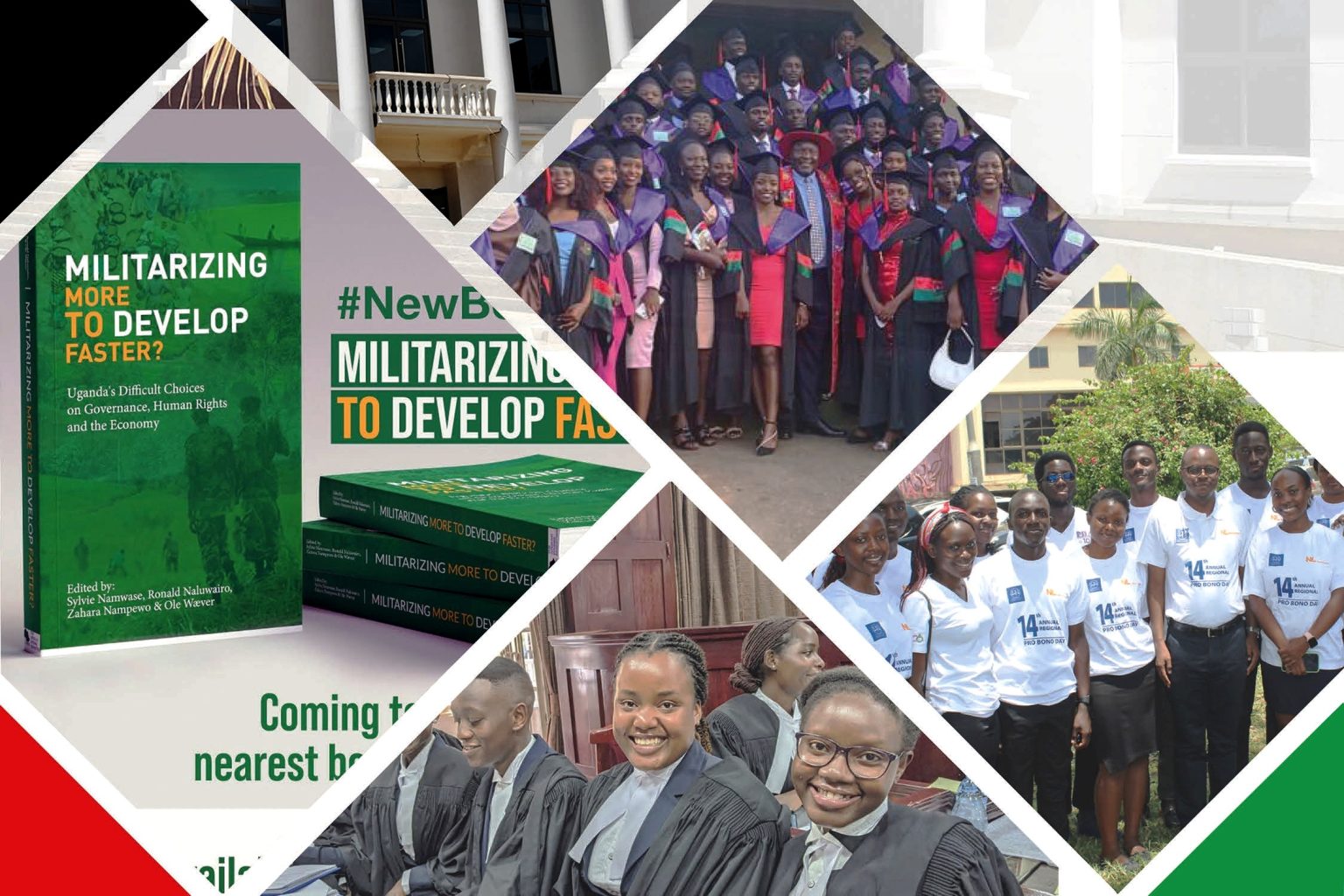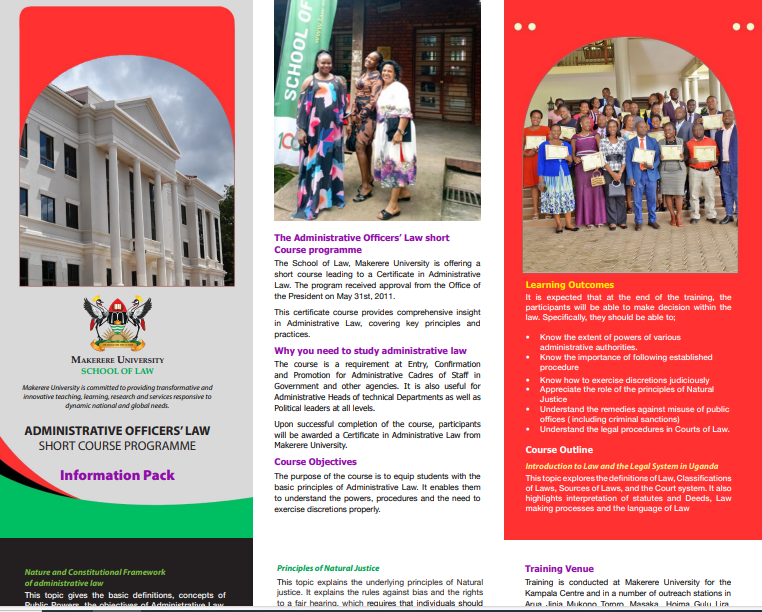DISSEMINATION OF THE PILAC WORKING PAPER NO.6
The School of Law through the Public Interest Law clinic has been commended for the efforts made in highlighting the plights of women incarcerated with children in Uganda.
During a research dissemination workshop held at Piato Hotel yesterday, PILACwas commended for showing the shortcomings, the gaps as well as the opportunities available in the handling of pregnant women and women with children facing the law.
In the meeting convened to share the findings from the study commissioned by PILAC undertaken by Kirom Associates, it was agreed that women facing the law encounter a number of challenges and needed the support of various stakeholders as they serve their sentences.
As a way forward, it was agreed that PILAC develops an advocacy strategy that would lead to adequately planning for the neededinterventionsthrough working closely with various stakeholders in the law and order sector.
The research which is PILAC’s Working Paper No. 6 is entitled “Access to Justice for Women Incarcerated with Children in Uganda: Flaws and Opportunities for Reform”.

Research is one of the key outputs of the program whose mission is topromote legal education, research, legal, public interest litigation and building strategic partnerships.
The event was attended by a number of stakeholders that included representatives of Uganda Prisons, Uganda Police Force, JLOS and Civil Society Organizations.
Key among the findings was that women incarcerated with children represent a small percentage of the prison population and therefore get left out at policy, planning, budgeting and implementation of interventions. It was also established that women detained in urban prisons have better access to health care facilities, accommodation and food for them and their children as compared to those in the rural areas. And that the number of children in detention with their mothers has been rising over the years.
In his remarks, the Commissioner general Uganda Prison Services Mr. Samuel Akena commended the study that according to him addressed a pertinent issue in as far as prison services is concerned. He however noted that Uganda Prisons should have been consulted more in the study in order to get a more representative picture of the situation of women in prisons country wide.
He pointed out that some of the challenges raised were due to social economic and cultural issues which had not been covered by the research in detail. On the transfer of women from one prison to another, Mr. Akena noted that a lot of considerations are taken into consideration before making transfers of prisoners which could inform why some women had been transferred from one prison to another, he explained.

In the plenary discussions that ensured, there was a call to domesticate Article 11 of the International Convention on Civil Cultural and Political rights (ICCPR)concerning civil detentions. It wassuggested that probation officers be included in the criminal procedure involving pregnant women in conflict with the law and women incarcerated with children.
In addition, there was a call for the adoption of a policy on arrests and detentions, as well as stepping up advocacy efforts in order ensure that thelegal aid policy is operationalized.
The other proposals concerned engaging theJudiciary, Judicial Service Commission, Judicial Training Institution, Law Development Centre (LDC) and law schools to change mindsets and the advancement of non-custodial sentences for women incarcerated with children and pregnant women in conflict with the law.
The meeting was further informed that although it was true that the law did not categorize the needs of the affected women, it was the case in practice and that Uganda Prisons has been recognized as having the best rehabilitation programs in Africa.
A representative from the Uganda police stated that at times the women frustrate the efforts made by the police towards helping them and called for the involvement of the Criminal Investigation Department officers in theinterventions geared towards helping incarcerated women.
The participants in the dissemination meeting identified the challenges faced by women incarnated with children that included lack of legal representation, lack of access to health facilities and proper food for both mothers and their children, lack of bonding of mothers and their children, the need to strike a balance between punishing the child in the process and helping it bond with the mother, lack of awareness, lack of family support, flaws in budget allocation, lack of integration procedure, lack of material needs, welfare, ad hoc intervention and need to streamline procedure for arrest and detention among others.
Partners that could play a role in addressing these challenges were identified and included organizations like Women in conflict with the law, Justice Law and Order Sector (JLOS) and its partners, NIRA, health service providers, Ministry of Labor, Gender and Social Development, NGO’s & CSO’s, Ministry of Internal Affairs, Religious Institutions, Donors, Local governments, and the Ministry of Foreign affairs.
The objective of the advocacy as a strategy identified to help redress the challenge was specifically to promote non-custodial sentences for affected women, create awareness of issues affecting women, formation of synergies, being key players in policy and parliamentary discussions and strengthening the legal and policy frame work to protect the affected women.
It was agreed in conclusion that there was need to define mid-term, short term and long term objectives and priorities and a need to monitor and evaluate implementation of the adopted strategy.



